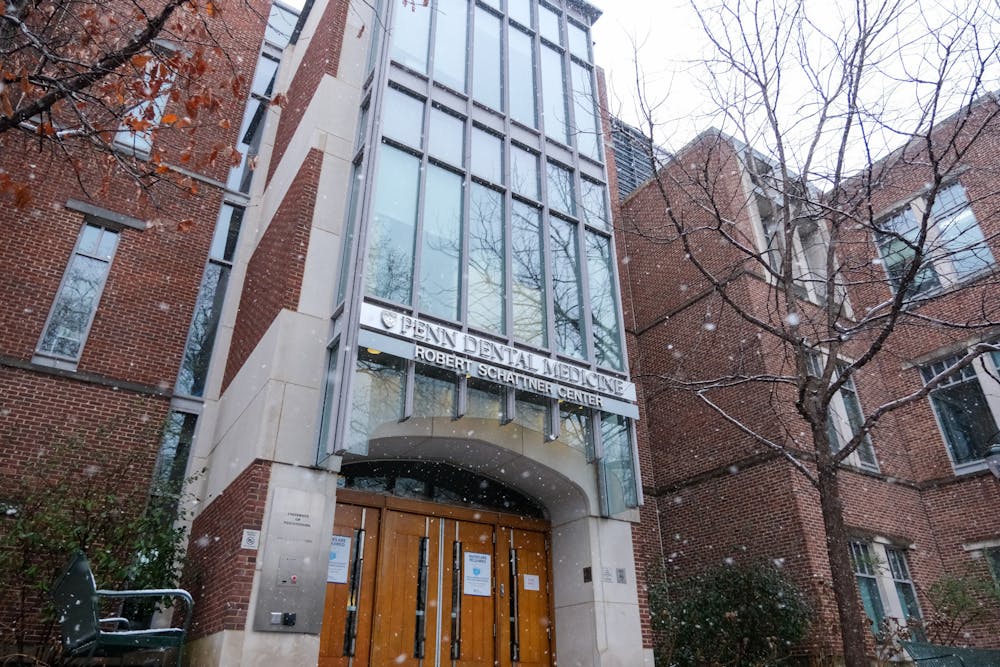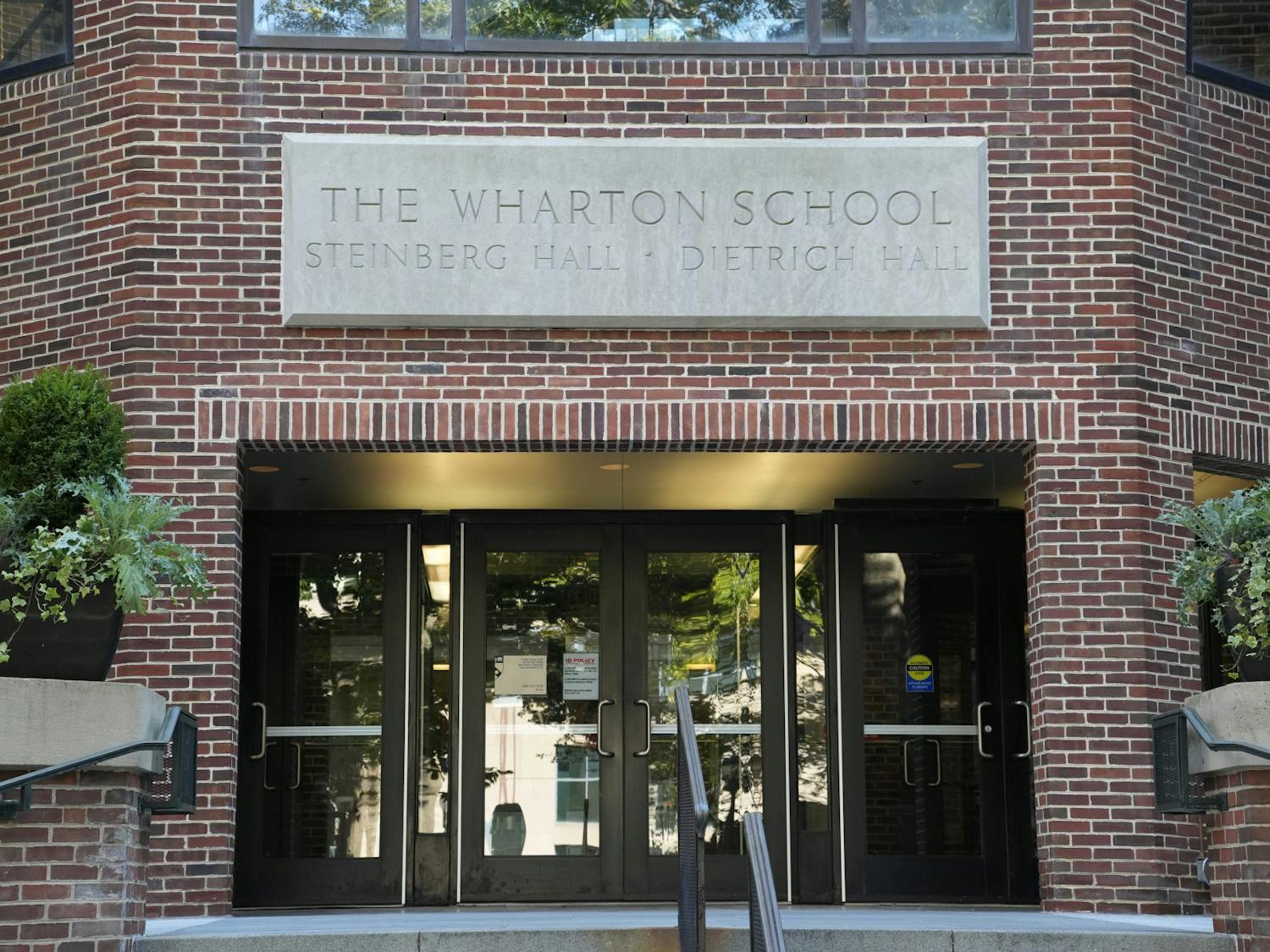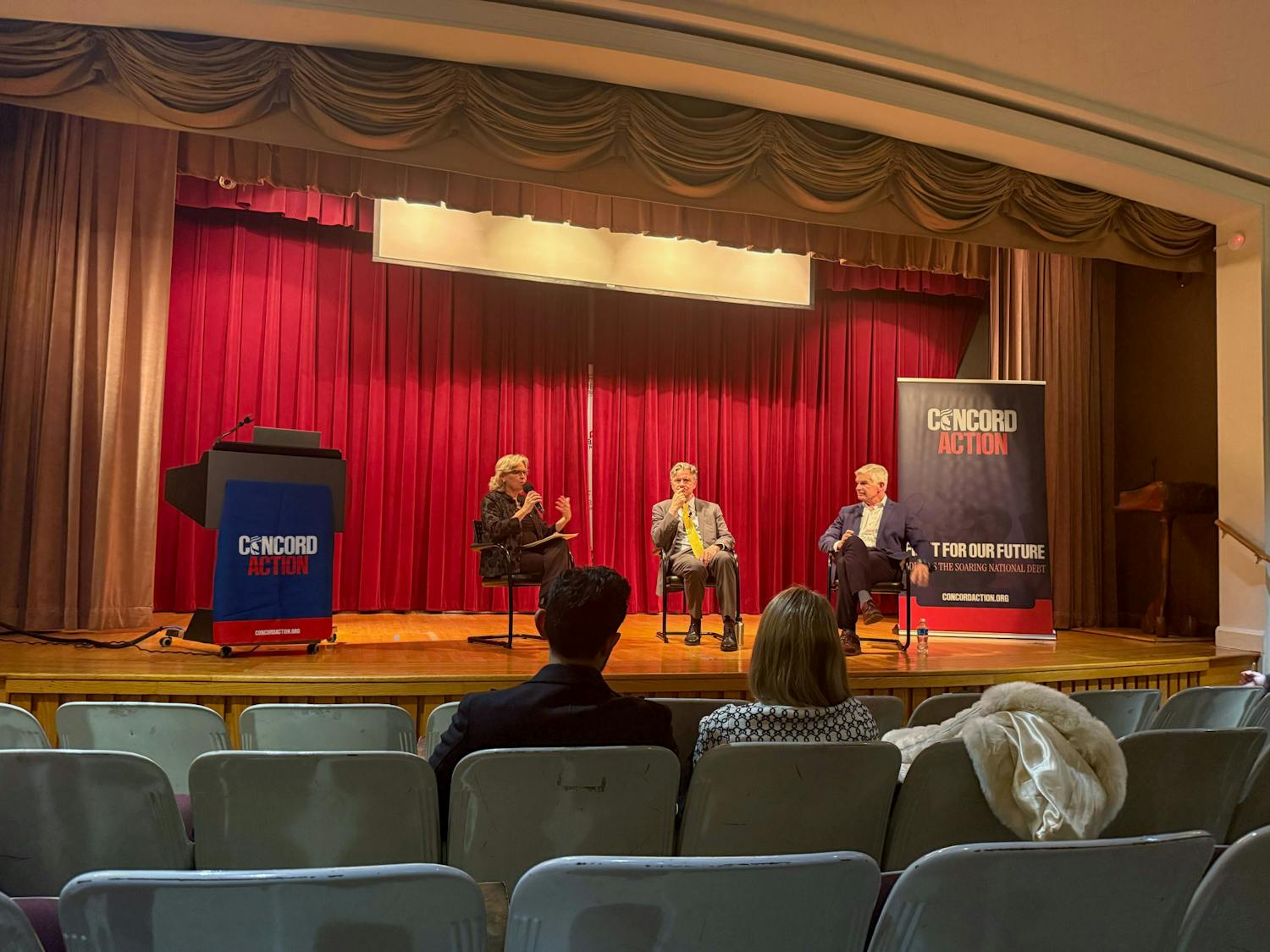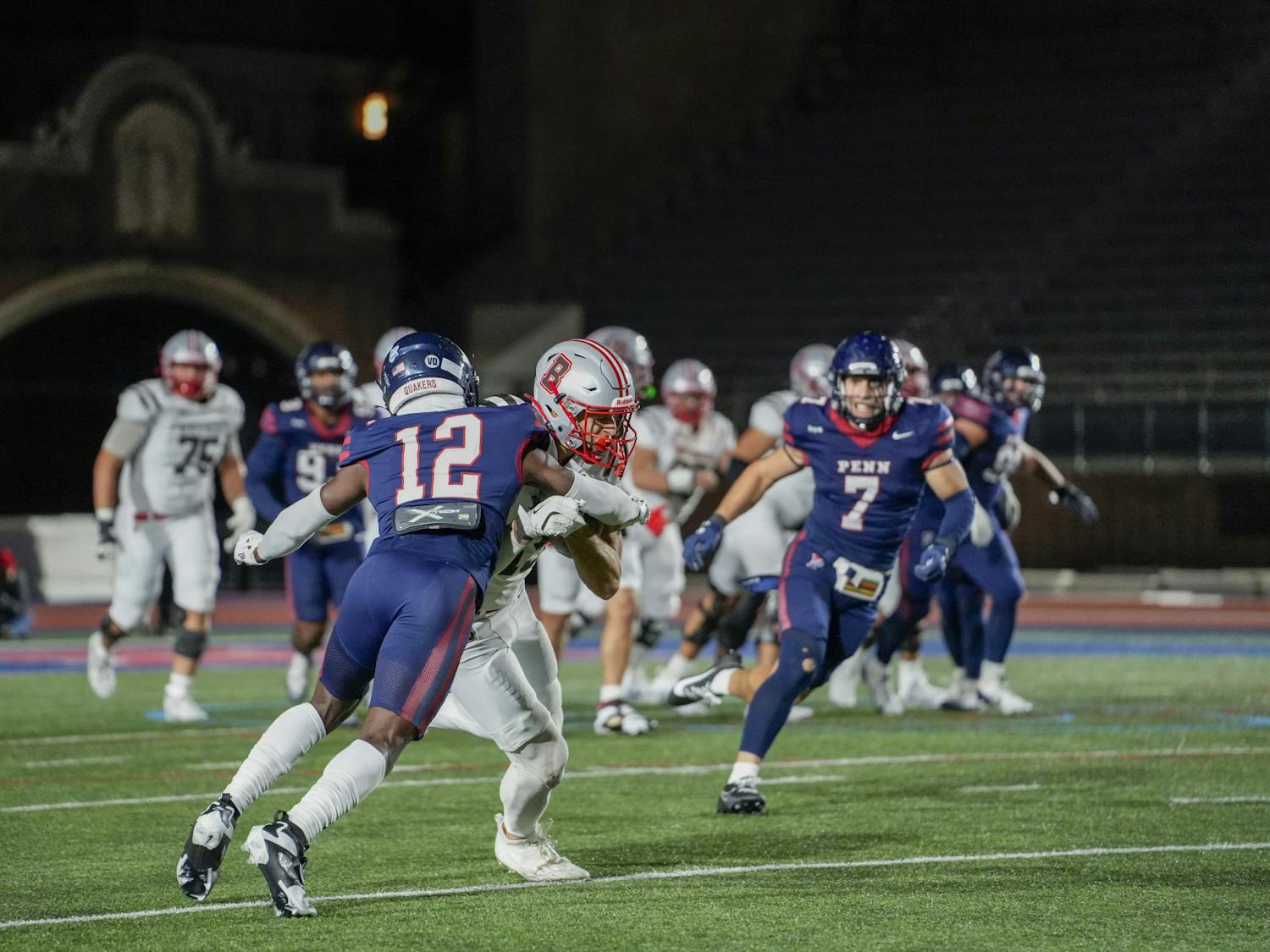The University has discontinued its seven-year Bio-Dental submatriculation program and will not be accepting a new class this admission cycle — but the program's director and a School of Dental Medicine administrator disagreed on whether current students are still able to submatriculate into the Dental School.
The accelerated dental program was a joint program in which students in the College of Arts and Sciences received conditional acceptance to the Dental School upon admission to the University. Students spent their first three years as undergraduate students in the College before applying to the Dental School after their junior year.
The accelerated Bio-Dental program reduced the tuition and time it took for students to receive both a bachelor's degree and a dental medicine degree from eight years to seven years. Students were also able to skip the dental school interview process, gaining full admission to the Dental School based on their academic performance while in the College — an application process which one student described to the DP as a "formality."
The program's discontinuation means that the University will no longer admit first-year students into it. However, current students who spoke with The Daily Pennsylvanian expressed concern and confusion due to a lack of clear communication about the status of students already in the program.
The University's Bio-Dental program did not have a group of faculty members or staff leading the program. In contrast, other dual degree programs such as the Roy and Diana Vagelos Program in Life Sciences and Management and the Jerome Fisher Program in Management Technology are led by a variety of faculty and staff, with positions including program coordinators and administrative directors.
The first faculty point of contact for students in the program was their adviser in the College Office, Assistant Dean for Advising of the College Srilata Gangulee. While Gangulee created the program and said that she "directed" it, she told the DP that she did not officially hold the title of program director.
The DP spoke with three students in the Bio-Dental program, all of whom referred to Gangulee as a pre-major adviser or a general biology adviser and did not know that she directed the program. The three students stated that — while Gangulee helped advise them on their biology courses — she often provided inconsistent information and did not have up-to-date knowledge about the Bio-Dental program's requirements, leading to a heavy reliance on students' peer advisers.
College junior Jaxson Nield, however, said that while most people in the program were assigned to the same Bio-Dental peer adviser, he — along with two other students — was assigned to a different peer adviser who was not a member of the program.
RELATED:
Penn Dental receives grant for caregiver educational programming
Mark Wolff reappointed to second term as dean of Penn Dental School
Gangulee, in an interview with the DP, spoke in vague terms about the status of the students currently in the program and slightly contradicted herself on multiple occasions, even when pushed for clarification. She said that the submatriculation option into the Dental School had been completely discontinued, even for students who are already in the program and have received conditional acceptance.
"The Dental School submatriculation program is gone even for the current juniors or seniors," Gangulee said.
However, current students were told by Mark Mitchell, the Dental School's assistant dean of admissions, that they would not be impacted by the discontinuation.
When asked for further elaboration on the status of current students, Gangulee said, “We are in a fuzzy position right now. It’s neither continued nor discontinued."
College juniors Ved Pimple and Shreya Sharma both said that they, along with their peers, found out the program had been discontinued after seeing a change to the program website reading “The Bio-Dental Program is no longer accepting new applications.” They said that they also noticed that the website began referring to the program in the past tense.
As the three students did not receive any communication about the program's discontinuation, they described feeling confused and concerned over whether current students in the program were still provided their conditional acceptance into the Dental School.
Pimple said this confusion was resolved after a student emailed Mitchell for clarification. In the June 20 email exchange, obtained by the DP, Mitchell wrote that — while the program was no longer accepting applications from individuals in high school — "Those of you currently enrolled in the program are not affected."
In response to a request for comment, John H. and Margaret B. Fassitt Professor and Undergraduate Chair of the Biology Department Scott Poethig said that he did not have any information about the program and directed the DP to Paul Schmidt, the previous undergraduate chair of the department, who is currently on sabbatical. Schmidt directed the DP to the College Office, which did not respond to a request for comment.
Mitchell and Dental School Director of Admissions Brian Hahn also did not respond to requests for comment.
Gangulee said that, while current Bio-Dental students are still allowed to take eight courses in the Dental School during their senior year at Penn, they will not officially be a student at Penn Dental — contradicting the information that Mitchell told students in the program. She said that if current students have taken all 36 credits required for graduation by the end of their junior year, then they can be admitted into the Dental School for their fourth year — positing that, because of this, the discontinuation of the program for current students doesn’t technically change anything.
Gangulee also said that she first learned of the University's intention to discontinue the program three years ago, and was not provided a reason for the discontinuation — but said that she "imagine[s] it's about money," stating that a portion of the tuition which Bio-Dental students paid for their first year of dental school would go toward the College.
She added that while the Bio-Dental students “were very good academically,” the Dental School wanted to bring in "students from other places" outside of the College.
“It’s probably a good idea for our college students to finish off their college degree here,” Gangulee said. “It was a good program, but I think that they missed out on their senior year in the College. I did not quite care for that, because you are in the College only once in your life. You don’t get to repeat being 19 or 20 years old.”
The three students all shared discontent with the absence of a dedicated faculty adviser for the program, as most students were not aware that Gangulee acted as its director.
“If we could have had a faculty member that knew the Bio-Dental program in and out, that would have been phenomenal — someone who could have been a liaison between the College of Arts and Sciences and the Penn Dental program,” Pimple said.
Sharma added that there is, in his opinion, a “very big disconnect from the dental school to the undergraduate school.”
“I would have expected at least having an adviser emailing us maybe on a monthly or bimonthly basis saying, ‘Hey, these are the requirements. This is what you need to do.’ It felt very much like a solo journey with not a lot of help from the administration,” Sharma said.
Both Pimple and Sharma, who are currently applying to the Dental School, said that they — along with their peers — have experienced confusion about the timeline for applications and deadlines.
“The dental application cycle has been unnecessarily stressful because we don’t really have an adult to go to and ask questions about it, and we’ve just had to fight our way through,” Sharma said.
Pimple and Sharma praised the program, detailing positive experiences in it and suggesting that they were disappointed to hear about its discontinuation.
Pimple said that the Bio-Dental program was the reason he applied to the University and that being part of the program has taken the pressure off of the tedious and stressful process of applying to dental school.
“Because of that, my college experience shied away from the traditional pre-med toxicity that I think can exist. There was no sense of competition … I think this guarantee of being in dental school and being like, ‘You know what? We’re not here to fight, but we’re in this together to meet the requirements,’ created a camaraderie that I’m very grateful for,” Pimple said.
Sharma said that she was disappointed to hear about this decision, adding that the conditional acceptance into the Dental School gave students the freedom to explore new things during their time as undergraduate students.
“The Bio-Dental program gave a sense of security and camaraderie that I think was needed because you were with the same people for seven years. That could be a group of lifelong friends because you’re living together for seven years and taking the same classes together,” Sharma said.
“At the same time, I’m a little glad because I would hope that other students wouldn’t have to go through the same confusion that we had to go through,” she added.
Although the University's version of the program has been discontinued, the Dental School continues to offer accelerated Bio-Dental programs at four other universities: Hampton University, Lehigh University, Muhlenberg College, and Villanova University.









